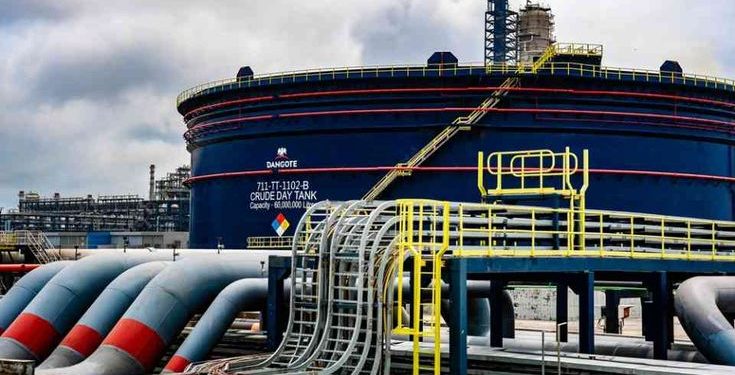Nigeria risked fresh petrol shortages on Monday, September 8, 2025, after the Petroleum Tanker Drivers branch of the Nigeria Union of Petroleum and Natural Gas Workers announced a nationwide withdrawal of services in protest of a distribution scheme by Dangote Petroleum Refinery. The union said the refinery’s plan to deploy thousands of compressed natural gas powered trucks for direct distribution threatens jobs and violated workers rights, a dispute that quickly drew other industry groups and prompted intervention by the federal Ministry of Labour.
What triggered the action
The immediate cause of the dispute is a Dangote Petroleum Refinery initiative to introduce up to 4,000 CNG trucks to move refined petrol directly from the refinery to retail outlets. NUPENG’s Petroleum Tanker Drivers branch said the scheme bypasses the existing tanker driver community, would reduce available jobs for independent drivers and forces newly recruited drivers to sign undertakings not to belong to existing unions. The union framed the policy as a violation of labour law and an attempt to undermine collective bargaining.
Union demands and rhetoric
NUPENG leaders described the refinery’s recruitment and contractual practice as tantamount to forced exclusion from union representation and used strong language to warn against what they called a return to exploitative work practices. The union called for an immediate halt to the CNG truck rollout and for guarantees that existing drivers and their operators would not be disenfranchised. Support for the strike was signalled by allied groups and by high profile labour figures who said they would press for government action if the standoff persisted.
Industry response and fractures
The standoff split industry voices. The Petroleum Products Retail Outlets Owners Association of Nigeria issued a notice of suspension of lifting and dispensing in solidarity with the tanker drivers, threatening to extend disruption at the retail end. By contrast, the Independent Petroleum Marketers Association of Nigeria publicly backed Dangote Refinery and distanced itself from the western zone’s strike posture, signalling the dispute could fragment supply chain stakeholders rather than produce a united front. Several associations representing drivers employed by the Dangote group also sought to dissociate themselves from NUPENG’s action and appealed to security agencies for protection from coercion.
Government moves to head off scarcity
The Ministry of Labour and Employment said it had convened conciliatory talks and invited all parties to avert a nationwide disruption to petrol distribution. Labour Minister Muhammad Maigari Dingyadi confirmed mediation efforts and urged both sides to exercise restraint while the ministry facilitated a negotiation. Officials said the aim was to secure short term assurances to keep product moving while longer term industrial and regulatory questions about workforce terms and trade union rights were addressed.
Economic and consumer impact
Analysts warned the timing of the dispute could cause immediate supply squeezes in major consumption centers if tanker loading and deliveries slowed or stopped. The Dangote refinery, which is central to Nigeria’s plan to cut petrol imports, has in the past taken decisions that affected market dynamics, including temporarily suspending local currency sales for commercial reasons earlier in 2025. Any sustained stoppage in tanker movements or retail dispensing could quickly translate into longer queues, localised hoarding and price spikes at the pump, particularly in urban hubs that depend on road distribution for refined products.
Legal and regulatory flashpoints
At the heart of the dispute are contested legal and constitutional claims. NUPENG and labour rights advocates argue that requiring workers to sign away union membership contradicts Nigeria’s Trade Union Act and constitutional protections for freedom of association. Dangote’s camp contends that the refinery, as an employer and commercial operator, may set its own employment terms and that the new CNG trucks represent a modernization of distribution that could improve safety and cost efficiency. Observers say the disagreement raises urgent questions about the balance between corporate operational autonomy and statutory worker protections.
What to watch next
Key developments to monitor include the outcome of the federal conciliation meeting, any government imposed emergency directives to compel continuous fuel movement, and whether the industrial action spreads to other downstream unions or retail associations. If PETROAN’s suspension of lifting is sustained or if more operators join the stoppage, the country could see measurable supply disruption within 48 to 72 hours in high demand locations. Conversely, a rapid negotiated settlement that preserves union representation rights while allowing a phased introduction of the CNG fleet would likely defuse immediate scarcity fears.



















































